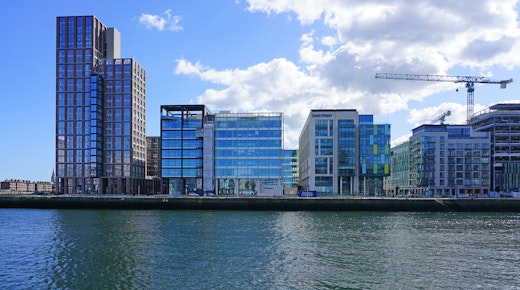Entrepreneurship and the creation of start-ups are increasingly important and recognised drivers of economic growth, employment and innovation globally and indeed in Ireland.
As almost one in five people aspire to start a business in Ireland and as entrepreneurial activity continues to develop, the importance and impact of entrepreneurship is set to increase further.
Entrepreneurship is enabled to thrive when various eco-system conditions such as: policy, finance, taxation, education, structure, support, training, research and development transfer, infrastructure and bureaucracy are positively and proactively designed, structured and implemented. Another key condition is the provision of suitable space from where entrepreneurs, start-ups and enterprises can be based, supported and developed.
Along with start-ups, the associated spaces from which they are based have been playing host to various and dynamic changes. Increasingly in place of traditional, separate and disjointed spaces are integrated, multi-serviced and connected enterprise and co-working spaces around the world.
Some attribute the rise of co-working to the impact of the global financial crisis of 2007 when entrepreneurs and professionals sought a leaner, cheaper and more flexible space to work from(2)(3). Other factors include the increase of the ‘sharing economy’ where people engage in sharing: lifts, accommodation, equipment and workspace(4) etc. as well as the ‘gig’ economy where workers engage in short-term or freelance arrangements. Gig based workers predominantly favour flexible, community orientated and serviced space where they can network and collaborate with other professionals.
Enterprise centre based working has also increased as both the public and private sector has sought to support entrepreneurs and start-ups through developing centres where relevant supports, infrastructure and space is clustered to strategically aid the incubation and growth of new businesses.
Enterprise and co-working spaces provide start-ups, entrepreneurs and freelance workers with much needed space, services, supports or links to supports and access to networks, knowledge and collaboration opportunities. These spaces therefore constitute a vital element of the start-up and enterprise ecosystem.
In line with international trends, spaces where start-ups and entrepreneurs are based are shifting towards co-working and enterprise centre models in Ireland and most prevalently in Dublin. This trend along with sector insights was highlighted in a recent study conducted by Dublin City Council on enterprise and co-working space in Dublin.

As part of the study; enterprise and co-working space was identified which as well as space, provides a level of enterprise ecosystem support beyond operating on a sole landlord basis. Identified space providers operate as either innovation, enterprise, co-work – centres, spaces or hubs and in addition to space provide supports such as networks, advice, training, events and mentoring.
114 enterprise and co-working spaces are operated by 61 providers within Dublin. Interestingly, the vast majority (46 or 75%) of space providers operate one space in Dublin which accounts for 39% of current spaces.
However, a minority (15 or 25%) of providers operate multiple spaces across the county which accounts for the majority (61%) of spaces.
Across Dublin in each of the 4 Local Authority areas, clusters of spaces exist. The largest is in the Dublin 2 area where 42 (36%) spaces are located followed by Dublin 8 with 9 spaces. Within the study, space providers were invited to participate in a survey of which 64% of those identified did so. Key findings and insights from the survey include:
- The majority (59%) of enterprise and co-working spaces were established in the last 10 years (2018-2008). Furthermore, growth of new spaces has increased over the last 5 years.
- Almost half the respondents plan to expand existing locations or to establish new locations and the majority plan to offer new supports / services to clients and upgrade infrastructure.
- Approximately 200 people are directly employed by spaces.
- A very slight majority (51%) of space providers operate on a not for profit basis.
- The most prevalent type of space provided is office (56%), followed by workshop / studio (29%) and warehouse (16%).
- The majority provide office units, hot desk, co-working space and numerous services and supports.
- There are approximately 2,500 enterprises and 10,000 people based at the respondents’ spaces.
- The majority (55%) of spaces currently have between 0-20% capacity available.
Stemming from this study is a further indication that enterprise and co-working spaces in Dublin are significantly contributing to and enhancing the start-up ecosystem.
On account of the diverse and increasing provision of entrepreneurship and start-up space as well as the further development of the eco-system, Dublin is set to continue being a national and international hub for new start-ups(5).
Going forward however, it will be interesting to see to what extent the rise of enterprise and co-working spaces in Dublin continues and how it contributes to entrepreneurship and start-up development.





